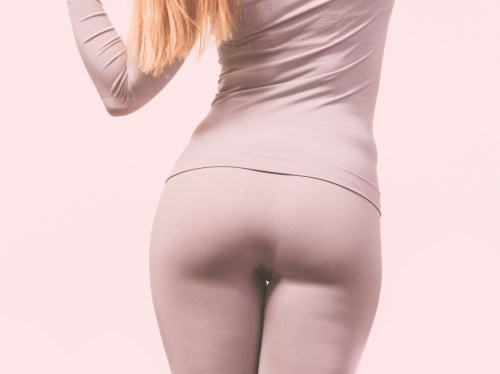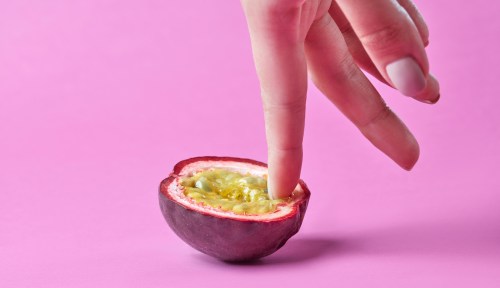The 7 Biggest Myths About Masturbation, According to a Sexologist and a Gynecologist
You probably grew up believing certain myths about masturbation. Here, two sexual wellness experts debunk seven common myths.

I grew up Catholic (and was named after the world’s most famous virgin), so trust me that I’m not new to myths about masturbation. I’ve contended with ridiculous notions that “only boys do it” and that partaking may result in fur sprouting on your hands. I debunked those specific myths about masturbation for myself long ago, but there are still a number of self-pleasure urban legends that endure to this day. And given how important masturbation really is for all of us, it’s time we clear up.
Below, a gynecologist and sexologist team up to identify the seven biggest myths about masturbation they still see as pervasive, and then they debunk each.
Myth 1: Masturbation causes acne
As any zit-spotted sufferer knows, acne has a bunch of nebulous causes. This can include foods, cleansing techniques,stress, hormonal triggers, and beyond. It’s perhaps this hormonal cause of acne where the confusion originates about the myth of masturbation causing acne, but ultimately, this connection just doesn’t check out.
Lucky Sekhon, MD, a fertility specialist and board-certified OB/GYN, says all women have some level of androgens (that is, male hormones like testorone) produced in their adrenal glands and ovaries. An excess of androgens can lead to hormonal acne, and high progesterone levels (which occur post-ovulation, typically a week or so before one’s period) can also lead to hormonal acne. But masturbation plays into this equation, like, 1 percent—if at all.
“Masturbation—that is sexual arousal and orgasm—does not cause changes in these hormone levels and has no bearing on whether a person has a breakout,” says Dr. Sekhon. “It’s possible that sexual arousal and desire happen to coincide with increased hormone levels during a woman’s menstrual cycle, which is why anyone has ever drawn an erroneous association between masturbation and hormonal acne.”
Verdict:
Hard no.
Myth 2: Masturbating means your partner isn’t “satisfying” you
A while ago, my friend’s boyfriend found her 10-inch vibrator and asked, “Do you even like having sex with me?” And it was hardly the first time I heard a story like that one because there’s an enduring myth that wanting to self-pleasure means a person is not interested in partnered pleasure.
“Masturbation and partnered sex are very different, and one could never replace the other.” —Sadie Allison, PhD, sexologist
To be crystal clear, wanting to masturbate doesn’t mean you don’t enjoy sex with a partner—they’re completely different activities. “Masturbation and partnered sex are very different, and one could never replace the other,” says Sadie Allison, PhD, sexologist, and co-founder of GoLove CBD lubricant. “Sex involves communication and human connection, whereas masturbation is more about taking time to connect with yourself and your body. Masturbation may help you sleep, may keep your anxiety levels low, and could even help ease pain—all benefits that are worthwhile on their own and have nothing to do with replacing human intimacy.”
Verdict:
Sometimes all you want is a solo-player game, and that’s okay.
Myth 3: Masturbation causes yeast infections
Staying in a wet spot all night doesn’t seem like it’ll do your vaginal pH balance any favors. But that’s the thing: Yeast infections are usually about environmental factors, not specific actions.
“Yeast infections occur when there is an overgrowth of yeast, which is commonly permitted by a change in the bacterial environment in the vaginal canal, says Dr. Sekhon. “The vaginal environment consists of healthy bacteria, which promote a normal pH and overall environment. Anything that changes the bacterial environment, like antibiotics, can make women prone to yeast infections due to a disruption in the delicate microbial balance.”
So masturbation alone will certainly not give you a yeast infection. However, do be aware of what you’re using during your masturbation session. Dr. Sekhon says that certain types of lubricants or sex toys could theoretically change the chemistry of the vaginal environment or could introduce bacteria that could alter the overall environment and open up the risk of infection.
Verdict:
Be wary of using coconut oil as lube and the like, and you should be pH-balanced and yeast-infection-free.
Myth 4: Masturbation causes permanent nerve damage and/or vaginal desensitization
If you’re giving your usual vibrator some serious overtime, you might notice that your vagina feels desensitized, leading you to worry that you’ve done some serious permanent damage. Well, worry not.
“Masturbation doesn’t cause permanent damage—what it does do is create physical habits,” says Dr. Allison. “It’s actually a bit similar to alcohol tolerance: when you drink regularly, you may find it takes several drinks to feel tipsy, but when you don’t drink for a while and then drink again, your tolerance is lower and you may feel tipsy with less drinks than before.”
As Zhana Vrangalova, PhD, professor of human sexuality at New York University previously told Well+Good, “the nerve endings in the genital area get so used to this very high and fast vibration—they get conditioned, in a way—that slower and less-intense sensations just don’t do the trick.” The easy solution, then, is to switch things up.
“Try a new vibrator, explore a new erogenous zone, place your body in different positions—play with all the different ways your body can experience pleasure,” says Dr. Allison. “Or, simply take a cold-turkey break for a week or two, and you can find your sensitivity to touch and stimulation will be heightened.”
Verdict:
You might be temporarily numbed to pleasure, but novelty and time gets your groove back.
Myth 5: Masturbation can lower your sex drive
If anything, Dr. Allison says masturbating can actually improve your libido. “Not only that, but it can help you learn more about your own body so that you’re more comfortable and able to ask for what you want when you do enjoy sex with a partner,” she says.
“Masturbation can help you learn more about your own body so that you’re more comfortable and able to ask for what you want when you do enjoy sex with a partner.” —Dr. Allison
Verdict:
It’ll help more than hurt.
Myth 6: Masturbation causes infertility
To be clear up-front on this one—because that’s a really upsetting concern to have—no. Not at all. Dr. Sekhon says that there are a number of potential causes for infertility, and self-pleasure absolutely does not make the list.
“Masturbation does not change the hormonal function of the ovaries or cause damage to the reproductive tract,” says Dr. Sekhon. “It cannot influence a woman’s ovulation or the regularity of the menstrual cycle. Therefore, it has no impact on fertility.”
Verdict:
Absolutely not.
Myth 7: If you masturbate often, you could “run out” of orgasms
Just no. This just isn’t how orgasms work, friends. While sometimes the journey to an orgasm might be a Lord of the Rings length epic, they simply don’t go out of stock.
“You have an infinite number of them, and masturbation will not negatively impact that,” says Dr. Allison. “Again, regular masturbation could actually enhance your sex drive and teach you about your likes and dislikes, which makes it easier to orgasm with a partner.”
Verdict:
Get your best vibrator and break some world records.
Sign Up for Our Daily Newsletter
Get all the latest in wellness, trends, food, fitness, beauty, and more delivered right to your inbox.
Got it, you've been added to our email list.










